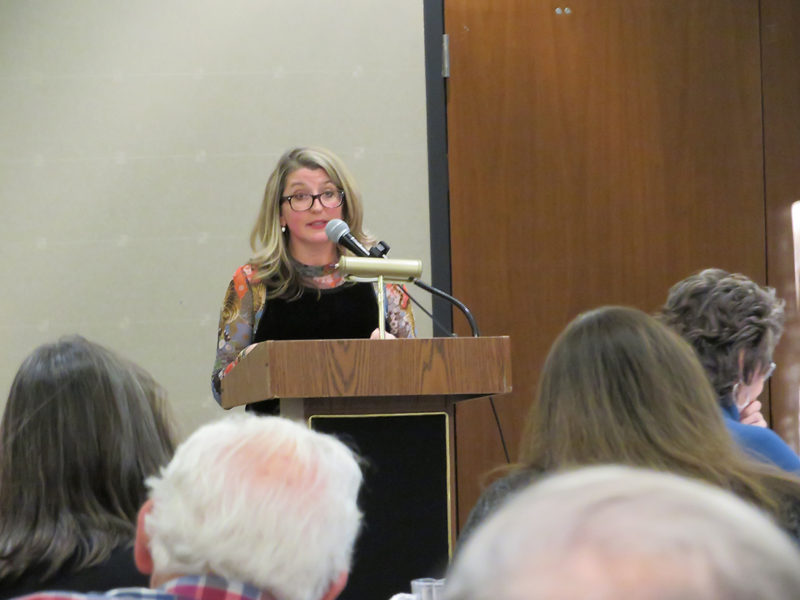Representatives from 35 farmers’ institutes gathered in Richmond on November 29 at a meeting convened by the BC Ministry of Agriculture to discuss priorities and receive updates on ministry initiatives designed to support farming.
Ongoing changes to the Agricultural Land Commission and regulations governing activities in the Agricultural Land Reserve were a particular focus. Several farmers’ institutes have raised concerns regarding the impact of changes governing secondary housing as well as greater compliance and enforcement efforts.
A morning session focused on myth-busting about the changes. An afternoon presentation by BC agriculture minister Lana Popham gave hints of what’s to come.
Popham said the province is considering allowing all landowners, whether or not they farm, to build secondary residences in the ALR, providing owners first register the residences with the ALC. These include both mobile homes and carriage houses, though whether these could be permanent structures is unknown.
The ministry says no application to the ALC would be required but it hasn’t determined the role of local government in regulating second residences under the proposed change.
“We’re also considering removing the notice of intent requirements for fill that’s being dumped on the Agricultural Land Reserve, but is a low-risk activity,” Popham added.
In addition, the $1,500 application fee the ALC requires from landowners could be reduced significantly to mitigate the financial and emotional stress on smaller landowners.
“It didn’t really have a rhyme or reason to it,” she said of the fee. “It certainly doesn’t recover the amount work that goes into processing those applications – it would be way higher if it did – and so if it’s not reflecting that work anyway, maybe we decrease it to reflect on the affordability of people in British Columbia.”
To communicate future changes affecting ALR landowners, Popham is exploring distributing information in partnership with BC Assessment via assessment notices each January and other regular mailings.
The meeting with farmers’ institutes marked the end of a stakeholder engagement process that began in September. The results will guide new regulations giving force and effect to Bill 15, passed this spring, among other changes.
The meeting was also the second annual conference organized by the agriculture ministry. It revived an earlier tradition of annual conferences dating back to the beginning of the 20th century, and sought to strengthen connections and communications among institutes.
BC has 40 farmers’ institutes in good standing that operate under the Farmers and Women Institutes Act, according to Chris Zabek, superintendent of farmers’ institutes. Six more incorporated institutes operate under the act but are not in good standing, due to not filing annual reports or other transgressions.
Others, including the Delta Farmers Institute and Richmond Farmers Institute, operate under the province’s Society Act and neither report to Zabek nor participate in the annual conference.


 Icewine harvest begins
Icewine harvest begins